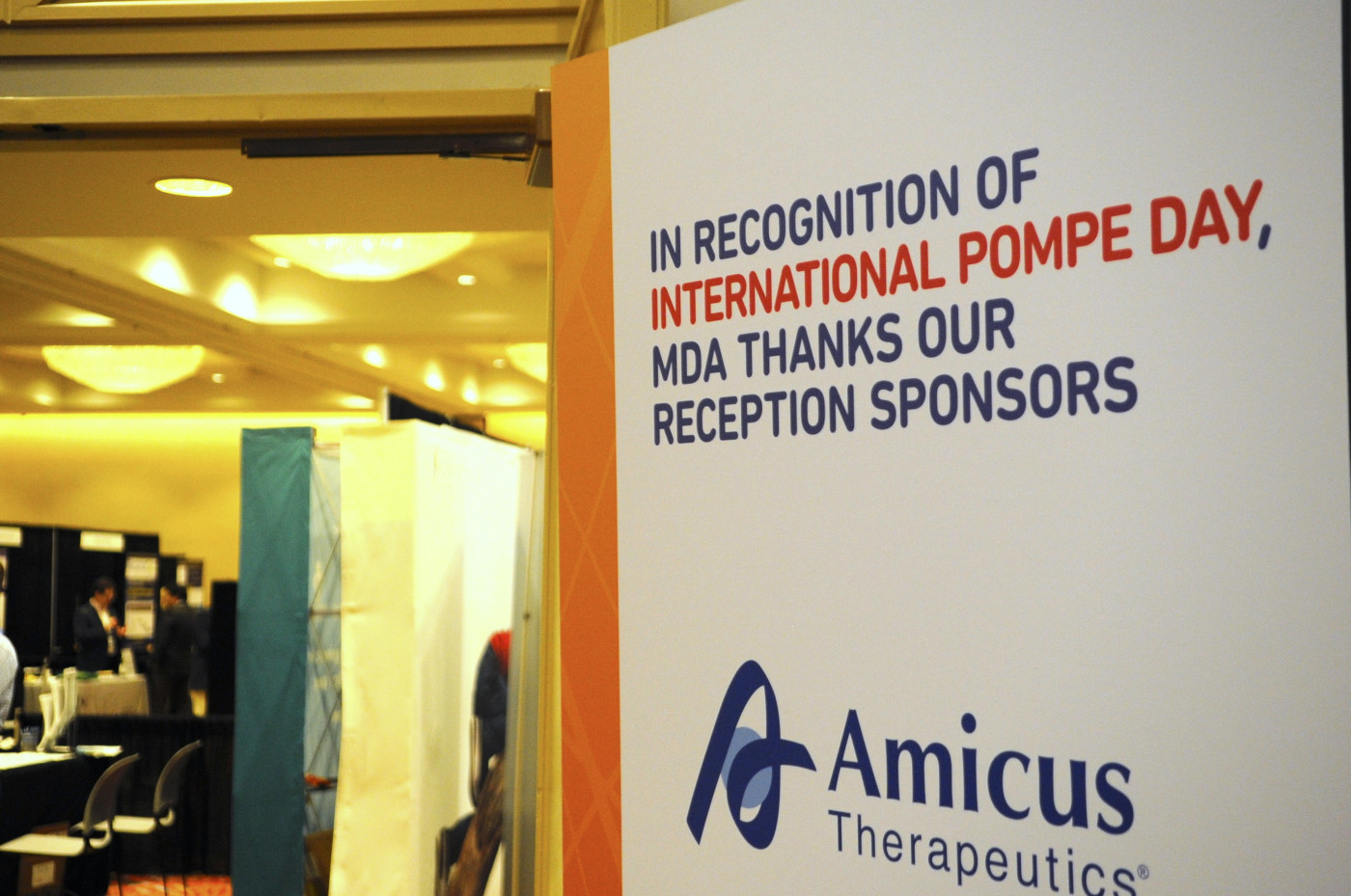MDA Seeks Patient Input for First Pompe Disease Drug Development Meeting in Washington

International Pompe Day display at the 2019 MDA Conference in Orlando. (Photo by Larry Luxner)
The Muscular Dystrophy Association is set to host the first Pompe disease Patient-Focused Drug Development (PFDD) meeting next year to inform therapy developers, regulators, and other stakeholders about the experiences of Pompe disease patients and caregivers, as well as their expectations for future treatments.
Patients and family members interested in serving as panelists in the March 9 event in Maryland, or want to suggest topics of discussion are invited to fill out this online survey by Friday, Dec. 13.
The meeting, approved late last month by the U.S. Food and Drug Administration (FDA), will connect patients, caregivers, medical professionals, and pharmaceutical companies through small presentations, panel discussions, polling questions, and a Q&A session. The daylong conference will focus on the daily impact of living with Pompe — a rare genetic disorder that occurs in one in 40,000 births worldwide.
The New York-based Muscular Dystrophy Association (MDA) is partnering with the Acid Maltase Deficiency Association (AMDA) and United Pompe Foundation (UPF) to bring the Pompe disease community to Washington, D.C.
“We’re honored to bring this patient community together in collaboration with AMDA and UPF, and to have leaders from the FDA and physician community join us to discuss this serious neuromuscular disease,” Kristin Stephenson, MDA’s executive vice president, chief advocacy and care services officer, said in a press release.
PFDD meetings were authorized by the FDA Safety and Innovation Act of 2012. The agency added externally led PFDD meetings in 2015, which are conducted by outside organizations such as the MDA.
The information from these meetings “is really critical to the FDA as well as biopharmaceutical manufacturers in ensuring that therapies that will be developed, and the therapies that will be approved, are as patient-friendly and as patient-focused as possible,” Paul Melmeyer, MDA’s director of regulatory affairs, told Pompe Disease News in a phone interview.
AMDA, based in San Antonio, Texas, hopes the meeting will shed light on what Pompe patients go through, the organization’s president, Tiffany House, said in a phone interview — “whether that be our experiences with the diagnostic process and living with Pompe today, or our hopes for the future.”
One enzyme replacement therapy — Lumizyme, developed by Sanofi Genzyme — is currently on the market to treat Pompe disease, and was approved in 2010. It’s marketed in Europe under the name Myozyme.
Several new gene therapies in the pipeline are addressing the defective acid alpha-glucosidase (GAA) gene, the cause of Pompe.
In February, Actus Therapeutics announced that its Phase 1/2 trial started dosing patients with its investigational ACTUS-101, a potential one-time gene therapy for late-onset Pompe disease.
Moreover, Audentes Therapeutics recently submitted an investigational new drug application for its Pompe disease gene therapy AT845, currently under review by the FDA.
Avrobio is also developing a gene therapy for Pompe Disease (AVR-RD-03), with preclinical results in a mouse model showing a favorable safety and efficacy profile.
Following the PFDD, MDA will publish a Voice of the Patient Report, which includes data from polling done throughout the meeting, and key takeaways. The FDA has directly cited the report in its previous approval letters, Melmeyer said.
The MDA has scheduled its Engage Pompe Symposium for March 8, which “offers opportunities for individuals just to get to know each other and break down the barriers rare diseases can sometimes create,” Melmeyer said.
MDA will compensate attendees for lodging, with travel stipends available for those needing assistance.






